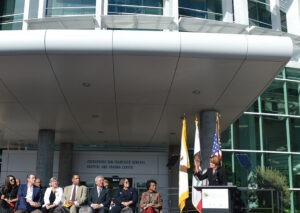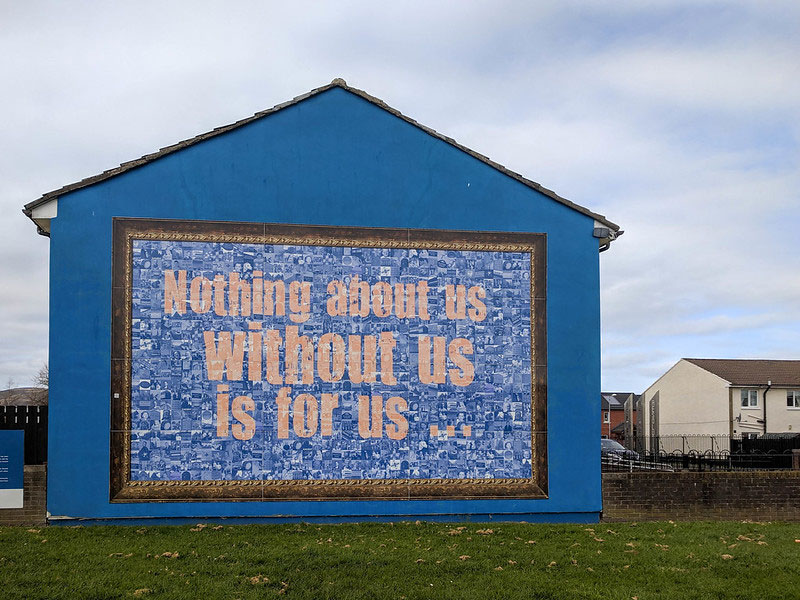
“In my experience,” said Ashley Taylor from Troutman Sanders LLP, the law firm representing Saving Sweet Briar in the lawsuit to keep the college open, “issues long in mediation sometimes get resolved on the courthouse steps.”
Taylor was speaking of the mediation discussions occurring at the Virginia attorney general’s office between the Sweet Briar board, which made the precipitous decision to close the 114-year-old institution, and the stakeholders who have been loudly and persistently objecting to that decision. That process, which Herring describes as having taken hundreds of hours, has been happening behind closed doors even as hearings were being held in the Bedford Circuit and Virginia Supreme Courts. Most recently, the Virginia Supreme Court sent the case back on appeal to Judge James Updike at the circuit court with clear direction to take the issue up with all haste because the timing could make or break this case.
For his part, Judge Updike stated quite clearly on Friday that he would brook no more delays and, further, that he was disappointed that the two sides had not come to an agreement to keep the college functioning another year.
Ah, the value of an explicit message!
On Saturday night, an agreement was finally announced by Mark Herring’s office. (You can read the signed settlement agreement here.) Having been approved by the court just this morning, it appears that it will keep the college open for another year, predicated on the departure of the president (within seven days of the court’s approval of the settlement) and replacement of a majority of the board. The grace period will allow those who believe the college can be saved to explore all options. The price of admission includes the $12 million that has to date been raised by Saving Sweet Briar, Inc. This will be added to $16 million that Herring’s office will free up unrestricted from the school’s endowment. All involved say the total should be sufficient to keep the school operational through the 2015-2016 academic year.
Sign up for our free newsletters
Subscribe to NPQ's newsletters to have our top stories delivered directly to your inbox.
By signing up, you agree to our privacy policy and terms of use, and to receive messages from NPQ and our partners.
Under the agreement, Phillip Stone, a former president of Bridgewater College who had been identified by Amherst County Attorney Ellen Bowyer as a good candidate for an interim fiduciary, will serve as the new president. A statement from Stone said, “After seeing the extraordinary passion, courage, and strength of the Sweet Briar alumnae, I feel privileged to be asked to join their heroic efforts to save this great college. I want to make it clear that my commitment is not merely to keep the college open for the coming school year but to help it embark on a path for its next 100 years! I am enthusiastic and optimistic about what lies ahead. With the support of such wonderful alumnae and so many other supporters and friends of Sweet Briar I am confident the college’s finest years can still lie ahead.”
Essentially, these are the measures that Saving Sweet Briar and its supporters have been advocating for since the beginning. The time that this agreement took, of course, has carried some tolls that now need to be addressed in the plan to save Sweet Briar—loss of students and faculty, among other things.
But Teresa Tomlinson, the college’s 2015 commencement speaker who took the board to task in her well-covered address, sees in this moment valuable lessons about the changing nature of governance. Many nonprofit boards, she finds, are caught up in a misunderstanding, believing the role carries less oversight and direct accountability than it actually does. She thinks that the drama of Sweet Briar should cause others to reconsider their boards’ take on governance: “Board members who have placed too much faith in their executives can end up holding the short end of the stick. Board oversight necessitates more critical analysis than simply rubber-stamping reports and recommendations.”
Tomlinson reminds boards, “You cannot avoid the angry mob through secrecy and insular decision-making. Everyone pays the piper eventually, and it is essential to get broad input upfront when many stakeholders are involved. If you do not tell anyone about an impending decision critical decision, that’s not real governance. We have to get used to convening the anticipated much feared ‘angry mob’ and dealing with their concerns. It is, after all, called ‘governance’ and not ‘dictates.’”
NPQ has written repeatedly about the changing relationships between boards and their stakeholders and about the difference between governance writ large and the board of directors’ role within that construct. But to be explicit about the whole thing, since explicit messages carry a value all their own: If you believe that governance ends in your boardroom, think again. You have stakeholders that can support or oppose decisions made at that level, and they have more and more examples to turn to. Think about Market Basket, Susan G. Komen for the Cure, and the Minnesota Orchestra—all large institutions where decisions made by the board were reversed after stakeholders made themselves known. Sweet Briar College now stands among them.













